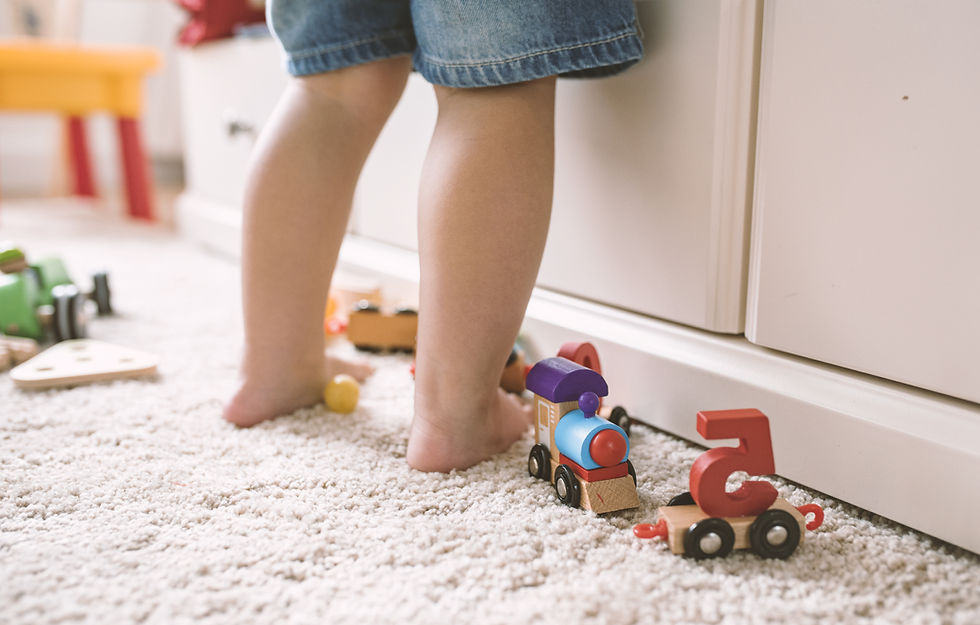"You get what you get and you don't get upset."
- Courtney Mahler

- Aug 2, 2021
- 4 min read
Even delivered with the melodic sing-songy tone of an early childhood educator these words send shivers down my spine.
In recent counselling sessions we have repeatedly heard these words repeated to us by children. Children who are using these adult worlds as a frame of reference to understand their own anxiety, grief and anger. Whether from a well meaning teacher, parent, early childhood educator or other trusted adult. These words are presenting our children with confusion. They are confused because these words, as straight forward and sweet as they may sound or be intended, do not don't fit with the physiological and emotional messages their bodies are providing them. In this moment our children are presented with a dilemma, do they listen to themselves and their bodies or supress these emotional messages to keep the grown ups around them happy. Due to an innate desire for connection it is far more common for our children to abandon themselves to keep adults close.

In childhood we gain the roadmap to relate to our internal world, we learn whether we can trust ourselves and if those around us can be relied on to assist us to feel safe within this world. Human children are not hardwired to gain these skills on their own, biologically our brains require safe secure connections in order to begin to develop the skills to manage our internal experiences.
Part of our goal as adults is to teach our children that feelings are not our enemies. Actually they are our compass and allies. They point us in the direction of connection, problem solving and our own values. Dan Seigel states the E-motions are named as such as they evoke motion towards or away for something. In order for emotions to serve us in this way we need to be able to lean into these and be curious about the messages they are sending to us. In adolescence and adulthood we need these messages to help us find healthy friendships, safe relationships, fulfilling carers and the ability to stand up to injustice. This would not be possible if our teenager has an attitude of 'you get what you get' when involved in a relationship with domestic violence red flags.
For this reason it is essential we teach our children that upset, angry or scared is not our enemy, in fact emotions all serve essential biological purpose and there are adults around them who can support them to feel safe enough to get curious about their emotions and respond in ways that assist return them to regulation. Instead of saying 'you are distressed but I can't/won't deal with that so I need you to ignore it', we can communicate that 'I see you are distressed by this thing (no matter how little it may seem through our adult lens), this is a chance for us to connect and for me as a grown up to give you a positive experience of recognising your emotion and engaging in your own problem solving process'. We can shift away from approaches in which we expect children to never get upset, to an environment in which they can learn that even if they get upset they are safe to connect with this emotion.

"You will get what you get and sometimes you may feel upset. If this happens look to a trusted adult to help you reset."
Help definitely won't often look like rushing in to fix the problem. They probably don't immediately need the toy someone else was playing with first, and their world won't actually end if they have the blue plate not the red. But they do need an adult to see their hurt, to validate and make space for their emotions. This can be as simple as stating "I can see how upset you are that you didn't get the red cup, that must be really hard. (DEEP BREATH) We can't get the red cup this time, is there anything else that the sadness in your body might need to feel better?" In this interaction we connect and redirect. We connect to the emotion and redirect the brain back into it's problem solving mode. When we are first learning these skills it will take time and repetition however investing the time to teach and not going the 'quick' route of suppression will save you so much time in the long run when this young person and eventual adult is able to tune in and be responsive to their own needs.
You may also find it valuable to pause and reflect...
Were their any adults in your childhood who gave you this space to listen to your own needs? If yes, what did they do well and what do you think it taught you? If no, what did the child version of you need to hear from your care givers and can you give yourself that message today?
So as you move about your day remember. It's okay to be upset. Your body is simply talking to you. Tune in. Get curious. Look for the underlying needs and that intuitive compass of yours may just be pointing you in the right direction.







Comments